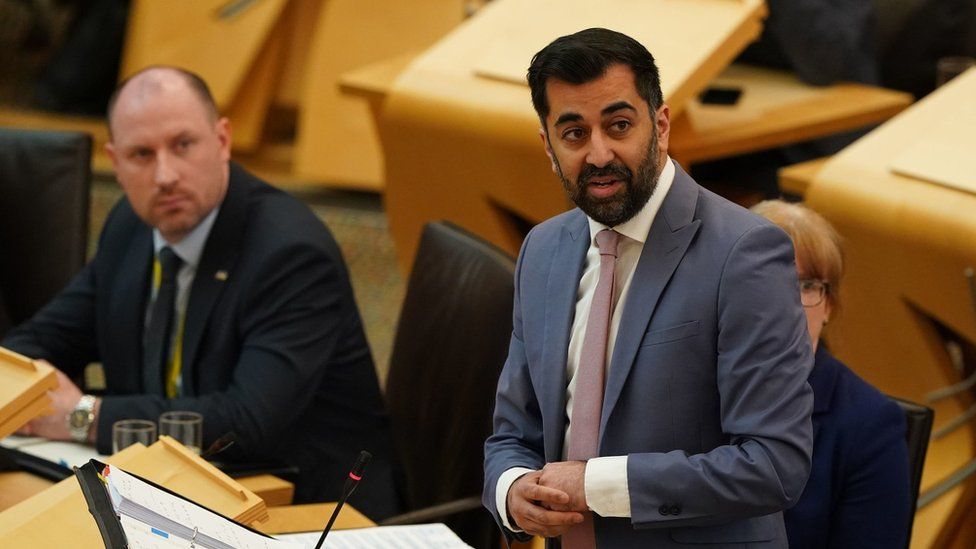First Minister’s Questions was dominated this week by the continuing problems being faced by the NHS.
We heard more stories of long delays suffered by patients; more statistics citing the scale of the problem; and more examples of how, when measured against other UK nations, Scotland’s difficulties can be made to look less bad.
But what of solutions?
OSF is currently talking to clinicians and NHS managers in Scotland about what needs to happen if our health service isn’t going to keel over. We aim to publish some recommendations soon. However, we’ve already begun to reach a few conclusions around which to base them. Here are 5 which we thought we’d set out now to help the discussion along.
1. EVERYONE AGREES WHAT THE PROBLEM IS
Medicine has become too successful. When it was set up, the NHS was designed to support a younger population when they got sick, when they fell off a ladder, or when they caught an infectious disease. Most of us still died not long after we retired: at 66 in the case of men; 71 in the case of women. In the 75 years since, the stunning advances in treatments, surgery, vaccines and therapeutics have transformed our lives. Whereas in the first part of the 20th century, life expectancy increased by reducing child mortality, in the second part, it rocketed upwards by keeping adults alive for longer. This now means the NHS is having to look after more older people for longer. So whereas previous a worker might have died at the age of 66 after getting inoperable cancer, today, the same worker gets expensive chemo and radiotherapy and may live another ten or twenty years – with chronic illnesses that also require medical support. In short, the NHS does a brilliant job at making sure people who would previously have died continue to live sickly at enormous expense to all concerned.
2. EVERYONE AGREES WHAT THE SOLUTION IS
There really isn’t much debate here. Read the recent Times Health Commission reportor the British Medical Journal’s Commission on the Future of the NHS or listen to them both on this podcast, and you’ll soon discover that everyone agrees that the job is to move from the current reactive system – waiting for sick, old people to arrive at hospital – to a more preventative one – where we stop people getting sick in the first place, or at least help them cope better with chronic disease. Hospitals and specialist care still needs to be funded, obviously. But the big task across ageing societies around the world is to shift healthcare systems from hospital based medicine to one which helps people cope independently. Everyone is agreed how to do so: make better use of technology; invest more in primary care; and shift more cash out of hospitals and into the community.
However, the question of how to fix the NHS is like pulling on a piece of string: you can keep going and going and going – because if we really want to reduce demand and deal with sickness and disease at root, then many argue we need to tackle the real root causes – like poverty, health inequalities, social isolation, physical inactivity, obesity and pollution. In short, if you really want to tackle our heath crisis, then you need to create a entirely different model of society.
3. THIS WON’T BE FIXED BY MORE DOCTORS
As the last sentence suggests, the question of how to fix the NHS is therefore a much wider one that simply hiring a few more doctors and building a few more hospitals (indeed, despite a 20% hike in doctor recruitment recently, the evidence suggests there hasn’t been a rise in NHS productivity). Just hiring yet more medical staff means continuing to do the current system a little better when what is required is a transformational shift. And this is the difficult part. Speak to NHS managers in Scotland and elsewhere and they will tell you that politicians are focussed on the short-term: how to reduce waiting lists by the election; how to increase the number of nurse headcount; how to cut waiting times in A+E. And while this is understandable – these are the things that matters most to us voters – the problem is that by spending money on fixing our current reactive system, we are spending less on long-term radical transformation. Put it this way: keep an inefficient hospital open, or merge it with one nearby and instead fund a new NHS App which helps GPs support people with chronic conditions in their homes? Few of us would select the latter. However, if we are to fix the NHS, then it’s clear that’s the kind of choice that needs to be taken.
4. TECHNOLOGY OFFERS HOPE
So we’re stuck? That mention of a NHS app offers a glimpse of the way ahead. For just as the technological advances in medicine over the last 75 years have seen life expectancy rocket, so the advances in tech over the next 50 years can help the country live healthier, longer lives. The incredible advances in genetics, AI, data management, and life science specialisms like precision medicine provide a bright ray of hope amid the gloom. Scientists, life science entrepreneurs, and data analysts are ready to turn that into better outcomes for us all – and free up doctors to focus on treating serious disease. The good news is that across Scotland, there is already an immense amount of world-leading innovation going on (if you’re interested in hearing more, watch this recent event in Glasgow.) But it isn’t yet baked into the system. We’re too risk averse, we don’t spend enough money on health technology, and we need to get over our suspicion of the private sector. This is where some of our recommendations will focus.
5. COLLABORATION IS KEY
None of the problems above are unique to Scotland. They’re the same issues being faced across the UK and the same issues in every part of the developed world too. The obvious conclusion is that where it’s in our interests, Scotland’s health system should seek to work together across the UK, Europe and beyond to help make the shift to a more preventative healthcare system. The model is the Covid vaccine taskforce – delivered ahead of almost every other country by using researchers, trials, and infrastructure across the four nations of the UK – is the way to go. A new mission to create a sustainable NHS is within our grasp.
And finally… there’s actually a sixth point.
The other big thing that is missing just now is around communications.
None of the above can or will happen unless policy makers carefully lay out and explain the huge changes that need to happen. As this blog has tried to do, there needs to be a clear plan of action set out which brings the public with it. A national conversation about the NHS – as proposed by BMA Scotland – is a good idea but it needs to be directed onto the “how” of change. How do you make this radical shift in the way we think about care? What are the tough choices we need to make? What are the trade offs involved? Again, OSF believes this immensely difficult task would be better attempted if carried out on a cross-party consensus basis across all four NHS services across the UK. In the real world, doing so before an election is impossible. Doing so afterwards, however, is something the next UK Government should seek to deliver.










